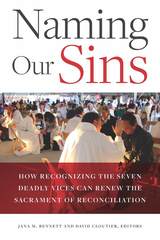
A comprehensive overview of the contribution of Catholic social thought to business ethics
Can a religion founded on loving one’s neighbor give moral approval to profit-seeking business firms in a global economy? What should characterize the relationship between faith and economic life? What can businesses, employees, and executives do to contribute to the common good and to make their practices and society more ethical?
Business Ethics and Catholic Social Thought provides a new and wide-ranging account of these two ostensibly divergent fields. Focusing on the agency of the business person and the interests of firms, this volume outlines fundamental issues confronting moral leaders and corporations committed to responsible business practices.
The book leads with interviews of three Catholic CEOs and the intellectual history of business ethics in Christianity before examining fundamental moral concerns regarding business: its purpose, autonomy, practical wisdom, and the technocratic paradigm. Contributing authors also consider management science, the motivations of business leaders, the role of luck in personal success, the traditional moral justifications for business, and more. These contributions bring new depth to the application of Catholic social thought to business ethics during a time when economic crisis demands a reevaluation of business and its contribution to society.


Luxury. The word alone conjures up visions of attractive, desirable lifestyle choices, yet luxury also faces criticism as a moral vice harmful to both the self and society. Engaging ideas from business, marketing, and economics, The Vice of Luxury takes on the challenging task of naming how much is too much in today's consumer-oriented society.
David Cloutier’s critique goes to the heart of a fundamental contradiction. Though overconsumption and materialism make us uneasy, they also seem inevitable in advanced economies. Current studies of economic ethics focus on the structural problems of poverty, of international trade, of workers' rights—but rarely, if ever, do such studies speak directly to the excesses of the wealthy, including the middle classes of advanced economies. Cloutier proposes a new approach to economic ethics that focuses attention on our everyday economic choices. He shows why luxury is a problem, explains how to identify what counts as the vice of luxury today, and develops an ethic of consumption that is grounded in Christian moral convictions.
READERS
Browse our collection.
PUBLISHERS
See BiblioVault's publisher services.
STUDENT SERVICES
Files for college accessibility offices.
UChicago Accessibility Resources
home | accessibility | search | about | contact us
BiblioVault ® 2001 - 2024
The University of Chicago Press









